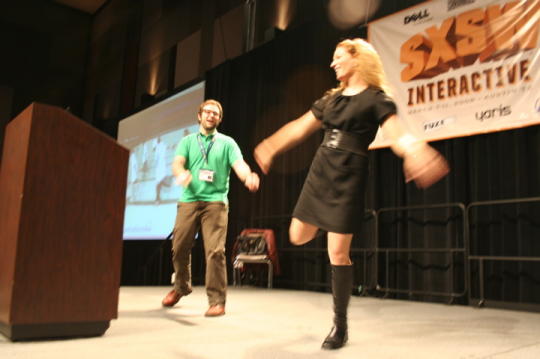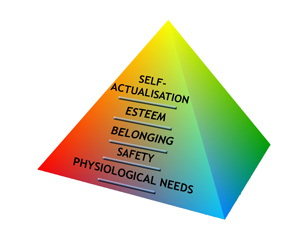Tom Bissell appeared on The Bat Segundo Show #449. He is most recently the author of Magic Hours. This is the first of a two-part conversation. The first part establishes Bissell’s peripatetic history and gets into his recent shift into video games. The second part gets into some entirely unanticipated truths about the relationship between life and words in 2012, among many other subjects, and can be listened to here.
Listen: Play in new window | Download
Condition of Mr. Segundo: Making the unanticipated five year wait count for something.
Author: Tom Bissell
Subjects Discussed: Living a peripatetic vocational existence, how receiving fellowships and jobs influence the city you live in, Ghostbusters references, moving and books, the joys of New York City, Bissell’s interest in recreations (film, video games, and photography), Grand Theft Auto, Uzbekistan, John Jeremiah Sullivan, Chuck Lorre, the restrictions of celebrity profiles, getting fired from My Little Pony, David Foster Wallace’s nonfiction, getting fired and removed from video game projects, writing for video games, why Bissell can’t quit video games (despite his best efforts), video game script formats, how screenplays and comic book scripts found their way into bookstores, Alan Moore’s meticulous description, communicating with level designers, attempting to form paragraphs within Excel spreadsheets, the dignified advantages of a screenplay over a video game script, the joys of playing builds, the ephemeral nature of video games, Baldur’s Gate II‘s enhanced edition, splitting duties between video game writing and nonfiction writing, Planescape: Torment, Sam Anderson’s article on “stupid games,” the addictive nature of games and smartphones, when video games suck significant portions of your time, Pac-Man’s strange perseverance, how graphical enhancement creates unanticipated obsolescence, trying to watch VHS tapes in a DVD age, the epic poem’s lifespan, when forms of communication stop being useful, downloadable content, grinding and monetization, Tribes: Ascend, finding artistic integrity within a money-making medium, Emily Dickinson, Jonathan Blow, and false impressions about teaching.
EXCERPT FROM SHOW:
Correspondent: Let’s start with the first sentence of this book. I think it’s a pretty telling notion that the author’s note is: “The first essay in this collection was written by a 25-year-old assistant editor living in New York City and the last was written by a 37-year-old assistant professor of English living in Portland, Oregon.” Now this is interesting because you are now no longer living in Portland, Oregon. You are now no longer an assistant professor. I read an interview you did with Owen King and I learned that, in fact, your video game script writing is also in this tetchy peripatetic vocational mode. So my question to you is, well, what do you think accounts for this existence? Were the early roots basically set down with this whole aborted Peace Corps stint? I mean, what of this? What do you think accounts for this constant travel on your end?
Bissell: I guess — I lived in New York City for nine years with a couple stints away. One in which I spent seven months living in Vietnam. I spent a summer in the Canadian Arctic. So I’d live in New York City and then go to places and spend time there. And then I won the American Academy of Arts and Letters Rome Prize, which is a great thing. But it also kind of wrecked my life in some very curious way. I mean, I don’t want to say that to give the impression that I’m not hugely grateful and it’s not an amazing prize. But from there, I wound up moving out of New York without ever really meaning to. And then I lived in Rome for a while. And then I got this fellowship. Then I moved to Vegas. And then I decided that I wanted to move to Estonia. And then that didn’t go well. And then I decided, “Oh, I need to get a job.” So I got a job as a professor at a time where it was really hard to get them. So then when I was offered this thing, I was like, “Oh god. Gotta take it. Gotta take it.” You know, economic downturn. Apocalypse coming. Cats and dogs living together. You know. That’s a Ghostbusters reference.
Correspondent: Of course. I got it.
Bissell: (laughs) For the audience.
Correspondent: Well, unlike William Atherton, you do have a penis. (laughs) I’m sorry.
Bissell: You’ve just doubled down on my Ghostbusters reference. So I moved to Portland thinking that this was where I was going to be for a while. And for various reasons, it just didn’t take. So I recognized that this was a chaotic last few years that I had as a person and as a writer. It hadn’t felt that chaotic. Every step that I’ve taken has kind of been, well, this is obviously what I have to do. But looked at objectively, I mean, I can’t believe I’ve written anything. Considering the amount of places. Moving. As I get older, I just get more and more books. So my girlfriend and I just moved to Los Angeles. And the movers, when they greeted us, they were like very hostile right away.
Correspondent: Hostile.
Bissell: Why were these guys so mad at me?
Correspondent: Books? (laughs)
Bissell: (laughs) Yeah. Because of the books.
Correspondent: Yeah, I know. Having moved many times myself, that’s always the pain in the ass right there.
Bissell: Yeah, man. For the first time in my life, for the first time in my life, I was like, “Yeah, I think Kindles might make sense.”
Correspondent: Because you might move next year.
Bissell: Because I might move. So now, if I had my druthers, I would live in New York City again.
Correspondent: But you live in L.A. right now.
Bissell: We live in L.A.
Correspondent: How long do you think that will last?
Bissell: I’m determined to live there for at least several years. And we’ll see. We’ll see.
Correspondent: But the peripatetic picaresque instinct might actually seize you again? Is this something you can entirely tame? Do you think?
Bissell: I can’t. Because, like I said, New York is the only place that’s ever never stopped boring me. And I get bored in places. And then I want to be somewhere else. And New York is really the one city that I never got sick of. Just even going back here, walking around, it’s just the most amazing place. And every neighborhood — and I’m sounding like just a hackneyed New York-loving cliche monger right now. But every neighborhood you walk through is interesting and there’s just — you never get tired here. You never get tired of it.
Correspondent: Well, let’s look at this from another point of view through the writing. In this book, you have “Escanaba’s Magic Hour,” which demonstrates how the re-creation of this real world on film leads to some problems. Because there are these stiff regulatory pronouncements upon the Escanabans. Is that how I would say it? Escanabans?
Bissell: Escanabans.
Correspondent: Okay. Fantastic. Don’t want to be rebuked by a local. (laughs)
Bissell: Escanabianite.
Correspondent: Yes! Exactly. It’s interesting that you ended up talking with Herzog when you did. Because Rescue Dawn — is that not a re-creation of a quasi-re-creation? Then you also, of course, pieced together details from your family of this photo in The Father of All Things. And then, if we go ahead and factor in your stints in Uzbekistan, the trip to Vietnam, being embedded with the Marines in 2005, much of this also involves some effort on your part to try and find a relationship with the real world. Now, with video games, much of your time, I would say, is spent working on fictitious worlds. You know, you describe the world of Grand Theft Auto IV at the end of Extra Lives: “as real as Liberty City seems, you have no hope of even figuratively living within it.” So I have to ask you about this. If Edmund Wilson said that the human imagination has already come to conceive the possibility of recreating human society, how does your imagination work? Why these efforts to take stabs at re-creation over the years? That’s a rather enormous question. But I wanted to see if we could roll the ball.
Bissell: No, no. And this is where I think you’re really onto something. I think some people — the conventionally-minded readers — would look at my interest in something like Grand Theft Auto, having started off as a travel writer to “real” places, would look at this as a kind of alarming drop in quality control on my part. But I’m really interested in travel, both literal and figurative. Right? And I’d like to think my books — and this is something I’ve consciously tried to create in my books — is a sense of realities within realities. And that photo thing that you mentioned, which is at the beginning of The Father of All Things, which is this book I wrote about my dad and my relationship, and his relationship to Vietnam, and a generational relationship to war that we both had a different version of that — and I took this photo and basically jammed a 100 page section out of just looking at this photo. And I don’t think that’s terribly different from my interest in video games in a weird way. I don’t think it’s that different from planting yourself in a place like Uzbekistan, which I didn’t really have any right to write about, you know.
Correspondent: Do you still feel that now?
Bissell: Yeah. Yeah. You know, as a nonfiction writer who’s — I’m not an expert on anything. I’m just interested in a bunch of stuff. And sometimes those interests fade.
Correspondent: But aren’t those interests enough? Isn’t that curiosity the ultimate drive that causes you to recreate in some sense?
Bissell: I hope so. Yeah. So this idea of loving worlds both real and virtual. And my favorite is I think the driving thing behind my entire goal as a writer. And I think my interest in games is finding yourself in this densely created place that human beings have populated with detail and incident, and then just running out there and finding out what’s ther4e for you. Now it may be pathetic from a certain perspective, that I’ve gone from traveling to places like Vietnam and Uzbekistan to serving these digital worlds. But I try not to think of it that way. Because I think — like what John [Jeremiah] Sullivan’s piece about Michael Jackson said — anything that is is real. And I really believe that. Because he was talking about people who had criticized Michael Jackson’s new face. No. “Anything that is is natural.” And that, I think, is a really wonderful insight. And I think it’s true. Anything that is is natural.
Correspondent: Yeah. But I’m wondering if, when you’re writing about something like a sitcom television producer, as you do in this book, and you have to hit the tropes of “Okay, here we are at the rehearsal stage,” “here we are with the joke writers trying to revise the joke so that it gets the biggest laugh for the audience” — what is interesting is the whole incident with the luncheonette at the beginning. The hard work. The failure at the beginning. Getting fired from My Little Pony. Those are very human moments. And it almost seems to me that you — particularly a guy like you, who is very much interested in the complex details of any world — it must be difficult to find a way to sandwich those moments into a profile along these lines when, in fact, you also have to meet the need of an audience who wants to know additional sordid details. Behind-the-scenes stuff.
Bissell: About Charlie Sheen.
Correspondent: Exactly.
Bissell: (laughs)
Correspondent: I mean, how do you negotiate the human in an essay like that when it would seem to me, if that is a goal of yours, to be more difficult than, say, going into ravaged terrain and seeing a disappearing sea or seeing that there are no remnants of a military campaign from decades before. You know what I mean?
Bissell: Well, this is the one thing that I think [David Foster] Wallace did so well in his essays. Which is he turned the act of noticing things into a kind of a narrative in and of itself. That the mere cataloging of things becomes the story in a weird sort of way. And I’ve never done this to the degree that he did it. But when you read these Wallace pieces, like about David Lynch or about talk radio, he’s always more interested in the cameraman or the baton twirlers. You know, he’s always interested in the freakshow qualities of the places he goes. And if you’re profiling a hit sitcom producer, you can’t do that. You can’t talk to the joke writer as much as you perhaps want to. Chuck Lorre, the subject of the piece, has to be the focus. So it took a long time to get those My Little Pony details out of him.
Correspondent: (laughs) How long did you have to work him? Did you have to grill him to get the My Little Pony details?
Bissell: Kind of. Yeah. Because it took him a long time to open up. And if there’s anything I can say about writing profiles, which writing celebrity profiles, I mean, why even bother? They’re too canny to really open up to you. And their publicists are all on everyone’s backs. And there’s all this quid pro quo that goes on with that kind of a piece. It’s not even writing. It’s like alien anthropology, right? But someone like Chuck Lorre, who has a publicist, but I think the idea of self-protection is much less pronounced as a technician type creator, right? Celebrity type creators are — I just can’t imagine ever being interested in writing about a person like that. So Chuck Lorre, you have all this access to the ins and outs of a fringe television job that he just happened to basically become the most successful sitcom producer of the modern age. It’s really interesting. But within that journey, there are all the arcana of how one goes about becoming a successful sitcom writer. And the fact that he got fired from My Little Pony was to me — I’m glad you latched onto that. Because that was the most interesting detail in that piece to me.
Correspondent: That from such a humiliation comes the great success.
(Photo: Trisha Miller)
The Bat Segundo Show #449: Tom Bissell, Part One (Download MP3)



 Different people have different approaches. One would think that McGonigal, having a PhD, would understand this basic truism. But then McGonigal,
Different people have different approaches. One would think that McGonigal, having a PhD, would understand this basic truism. But then McGonigal,  McGonigal uses the word “addictive” as a positive modifier. “What makes Tetris so addictive,” McGonigal writes, “is the intensity of the feedback it provides.” Wait a minute. Isn’t intensity a problem if we’re trying to contend with a mad influx of feedback? Later in the book: “By providing a goal-oriented, feedback-rich, obstacle-intensive environment for dancing, [Top Secret Dance Off, McGonigal’s project] makes dancing more motivating, fun, and addictive.” There’s a variation of “intense” and “feedback” again. Still, no clear answers on the “addictive” question. And isn’t it a bit self-serving and highly disingenuous to write in general marketing terms about your own game project? “Of course, we’ve also developed many external shortcuts to triggering our hardwired happiness systems: addictive drugs and alcohol….But none of these methods are sustainable or effective in the long term.” Wait a minute! If you’re applying “addictive” to something that isn’t sustainable, then is it safe to say that video games might prove just as unsustainable or ineffectual in the long term?
McGonigal uses the word “addictive” as a positive modifier. “What makes Tetris so addictive,” McGonigal writes, “is the intensity of the feedback it provides.” Wait a minute. Isn’t intensity a problem if we’re trying to contend with a mad influx of feedback? Later in the book: “By providing a goal-oriented, feedback-rich, obstacle-intensive environment for dancing, [Top Secret Dance Off, McGonigal’s project] makes dancing more motivating, fun, and addictive.” There’s a variation of “intense” and “feedback” again. Still, no clear answers on the “addictive” question. And isn’t it a bit self-serving and highly disingenuous to write in general marketing terms about your own game project? “Of course, we’ve also developed many external shortcuts to triggering our hardwired happiness systems: addictive drugs and alcohol….But none of these methods are sustainable or effective in the long term.” Wait a minute! If you’re applying “addictive” to something that isn’t sustainable, then is it safe to say that video games might prove just as unsustainable or ineffectual in the long term?  “What the world needs now are more epic wins,” writes McGonigal in typical Pollyanna mode, “opportunities for ordinary people to do extraordinary things — like change or save someone’s life — every day.” By nearly every philosophical standard, this statement is laughable. A Grand Theft Auto IV player may very well find pride in biking up the highest virtual mountain from the city (as McGonigal cites). While this alleviates boredom and occupies time, is this really comparable with saving a person’s life? McGonigal brings up Joe Edelman’s Groundcrew, which McGonigal describes as “a wish panel for real people.” But in an interview with McGonigal, Edelman reveals that this represents little more than entitlement and narcissistic wish fulfillment:
“What the world needs now are more epic wins,” writes McGonigal in typical Pollyanna mode, “opportunities for ordinary people to do extraordinary things — like change or save someone’s life — every day.” By nearly every philosophical standard, this statement is laughable. A Grand Theft Auto IV player may very well find pride in biking up the highest virtual mountain from the city (as McGonigal cites). While this alleviates boredom and occupies time, is this really comparable with saving a person’s life? McGonigal brings up Joe Edelman’s Groundcrew, which McGonigal describes as “a wish panel for real people.” But in an interview with McGonigal, Edelman reveals that this represents little more than entitlement and narcissistic wish fulfillment:  “Epic” is another modifier that McGonigal likes a great deal. She’s fond of bringing up meaningless achievements, such as the fact that, on April 2009, Halo 3 players scored 10 billion kills against the Covenant. “Ten billion kills wasn’t an incidental achievement, stumbled onto blindly by the gaming masses,” writes McGonigal. “Halo players made a concerted effort to get there.” You may as well jump up and down over the 30,000 Americans who killed themselves last year. Weren’t their suicides also “a concerted effort to get there?” Should we celebrate the fact that several trillion cigarette butts litter the streets worldwide every year? Simply the pollution is worthwhile because of its “epic” results. Bigger doesn’t necessarily mean better. And on the subject of Halo, McGonigal also praises the Halo Museum of Humanity — a startlingly convincing shrine that provides “epic context for heroic action.” What McGonigal calls “epic context,” I call “slick marketing.” And I’ll even go further.
“Epic” is another modifier that McGonigal likes a great deal. She’s fond of bringing up meaningless achievements, such as the fact that, on April 2009, Halo 3 players scored 10 billion kills against the Covenant. “Ten billion kills wasn’t an incidental achievement, stumbled onto blindly by the gaming masses,” writes McGonigal. “Halo players made a concerted effort to get there.” You may as well jump up and down over the 30,000 Americans who killed themselves last year. Weren’t their suicides also “a concerted effort to get there?” Should we celebrate the fact that several trillion cigarette butts litter the streets worldwide every year? Simply the pollution is worthwhile because of its “epic” results. Bigger doesn’t necessarily mean better. And on the subject of Halo, McGonigal also praises the Halo Museum of Humanity — a startlingly convincing shrine that provides “epic context for heroic action.” What McGonigal calls “epic context,” I call “slick marketing.” And I’ll even go further.  Aside from the fact that one doesn’t need a video game to create this type of needlessly limited community (why should people “interact”around a singular interest?), this is a troubling Kinsey-like approach to socialization. As anyone who has ever attended a science fiction convention knows, a common interest doesn’t necessarily ensure a lasting social bond. But don’t tell that to McGonigal, who confuses this grouping with communitas, “a powerful sense of togetherness, solidarity, and social connection. And it protects against loneliness and alienation.” Let’s see how well communitas worked out during the Blessed Sacrament procession, courtesy of Michael J. Sallnow’s Contesting the Sacred:
Aside from the fact that one doesn’t need a video game to create this type of needlessly limited community (why should people “interact”around a singular interest?), this is a troubling Kinsey-like approach to socialization. As anyone who has ever attended a science fiction convention knows, a common interest doesn’t necessarily ensure a lasting social bond. But don’t tell that to McGonigal, who confuses this grouping with communitas, “a powerful sense of togetherness, solidarity, and social connection. And it protects against loneliness and alienation.” Let’s see how well communitas worked out during the Blessed Sacrament procession, courtesy of Michael J. Sallnow’s Contesting the Sacred: